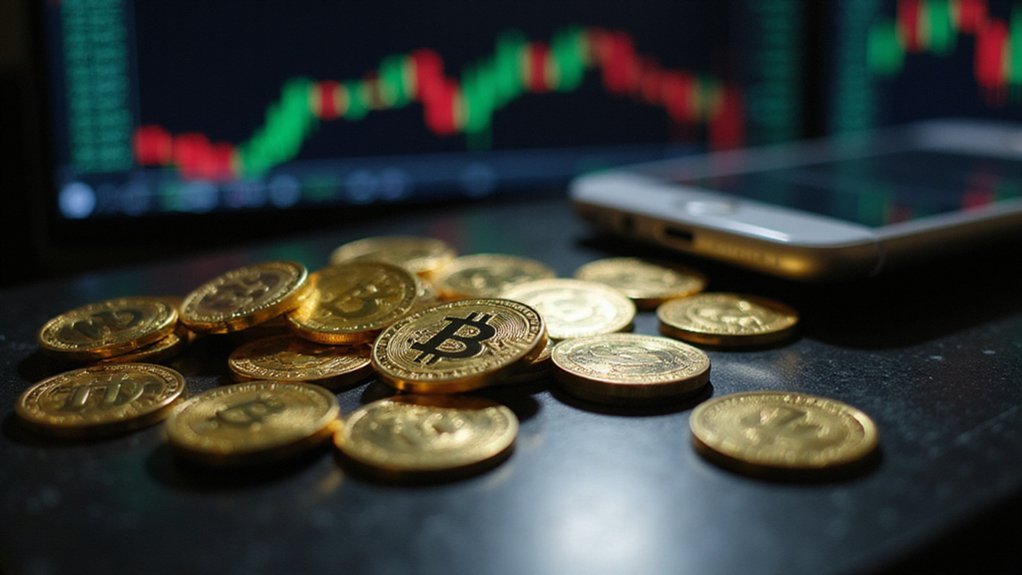The convergence of a $3 trillion cryptocurrency market with the rapidly expanding $17 billion affiliate marketing industry has created what can only be described as a digital gold rush—though one where the prospectors wield referral links instead of pickaxes.
This peculiar intersection has spawned an ecosystem where promoting digital wallets and trading platforms generates returns that would make traditional affiliate marketers question their life choices.
The mathematics behind crypto affiliate programs border on the absurd (in the best possible way).
RockWallet’s $70-per-referral structure demonstrates how platforms prioritize customer acquisition over conventional profit margins, while Coinbase’s offering of 50% trading fees for three months effectively transforms affiliates into de facto business partners.
Even modest programs like Zengo’s $10 Bitcoin rewards reflect the industry’s willingness to pay premium rates for quality leads.
What distinguishes crypto affiliate marketing from its conventional counterparts isn’t merely the commission structure—it’s the underlying market dynamics.
With over 10,000 cryptocurrencies vying for attention, platforms face unprecedented competition for user attention.
This scarcity has inflated affiliate payouts to levels that traditional industries (where acquiring a credit card customer might net $50) simply cannot match.
The projected growth trajectory from $17 billion to $31 billion by 2031, representing an 8% CAGR, suggests this isn’t merely speculative exuberance but sustainable market expansion.
Content creators, financial bloggers, and social media influencers have discovered that their audiences’ insatiable appetite for crypto-related content translates directly into affiliate revenue streams that often exceed their primary monetization methods.
Mobile-focused affiliates have emerged as particularly successful operators in this space, leveraging platforms like Twitter and Facebook to reach demographics traditionally underserved by conventional financial services. This approach proves particularly effective given that mobile traffic accounts for approximately 62% of affiliate-driven visits across all industries.
The irony that social media—once dismissed by financial institutions as frivolous—now serves as the primary distribution channel for sophisticated financial products isn’t lost on industry observers.
Despite crypto’s notorious volatility and periodic market corrections, affiliate programs continue attracting both seasoned marketers and newcomers seeking passive income opportunities. The robust 10% year-over-year growth since 2015 demonstrates that affiliate marketing’s expansion extends far beyond crypto into traditional sectors as well.
Success in crypto affiliate marketing often depends on selecting the right platform, as factors like fee structures, security features, and ease of use significantly impact conversion rates and long-term commission potential.
The fundamental appeal remains unchanged: promoting products that consumers actively seek while earning commissions that reflect the industry’s growth-at-all-costs mentality creates a compelling value proposition that traditional affiliate marketing struggles to replicate.







